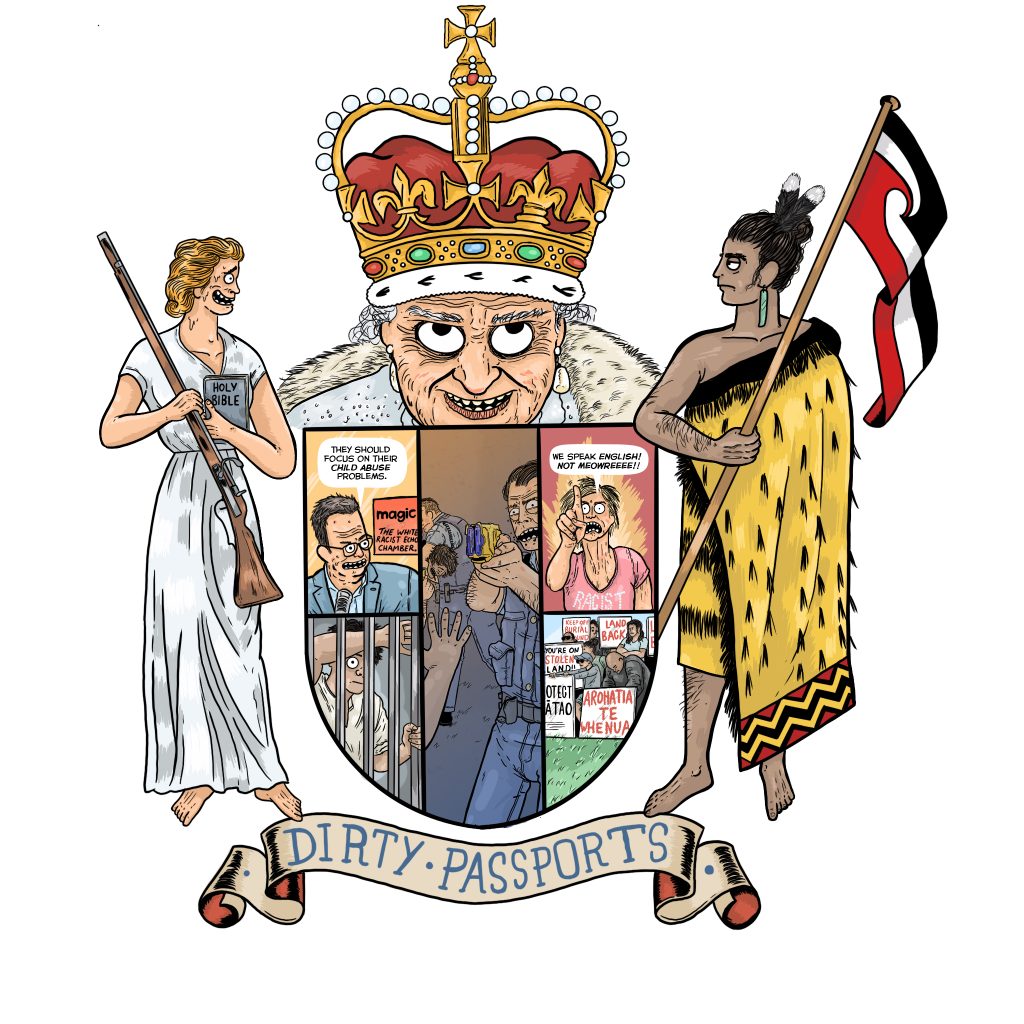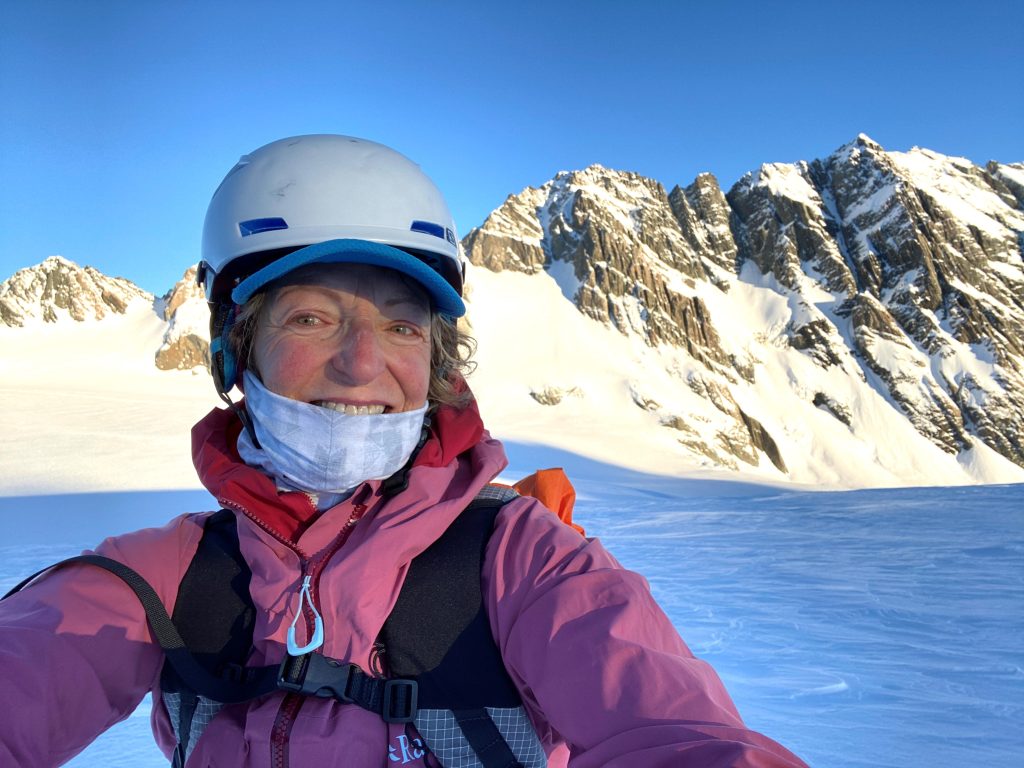It’s been a hot minute. The last time Wānaka’s Aspiring Conversations Festival of Ideas & Kōrero took place was in 2018, which was only six years ago, but jeez, what a six years.

Aspiring Conversations is the biennial off-year sibling to the also-biennial Festival of Colour, which has been running for almost two decades. The Festival of Colour is a week-long arts festival, featuring music, theatre, visual arts, dance and comedy. Basically, it turns Wānaka into Wellington, or even better, New York, for a week, but with a nicer backdrop.
The festival has also always had a series of talks, which were originally branded as the Writers & Artists sessions. They became much more than that, and were renamed Aspiring Conversations before launching as a stand-alone event in 2014. According to former festival director Philip Tremewan, the name emerged both because of Wānaka’s close association with Tititea / Mt Aspiring, and because of the meaning of “aspiring”. “It has the connotation of going somewhere. We were interested in pushing the boundaries, not just talking about the mundane,” he explains.
The list of past speakers bears this out. Take 350.org founder Bill McKibben. Since speaking in Wānaka in 2009, the author and environmental activist has become a leading voice of the global climate movement. That same year, Sunday Times foreign correspondent Christina Lamb spoke about her experiences reporting in Afghanistan in the wake of 9/11. She went on to co-author, with Malala Yousafzai, a wee book called I Am Malala. In 2019, the ‘Water Crisis’ panel saw the academic and Ngāi Tahu kaumatua Tā Tipene O’Regan, artist/poet Greg O’Brien and ecologist Dr Mike Joy discuss the evolving issue of freshwater, which was about to turn into the mother of all a political hot potatoes in the form of the Three Waters Reform Programme. And two Aspiring Conversations panellists have gone on to become Prime Ministers: Jacinda Ardern (2013) and Bill English (2016).
The Covid pandemic saw the 2020 and 2022 festivals cancelled, so there’s a big buzz around the 2024 event. Unlike writers’ festivals, which are great but obviously focussed on, well, writing, Aspiring Conversations takes ideas and shines a light into all their corners – no matter what the issue, expect a mix of academics, politicians, writers, actors, activists, musicians, artists, economists and even the odd chef. This is very refreshing. Having an artist like Greg O’Brien contribute to a discussion about a natural resource like water has a way of broadening the narrative – we drink water and irrigate with it, yes, but what else does it mean?

The ‘Dirty Passports’ session, for example, will see award-winning Chinese-Kiwi poet and playwright Nathan Joe explore stereotypes with Auckland slam poet Eric Soakai, spoken word performer Ngaio Simmons (Ngāti Porou), interdisciplinary artist Alvie McKree (Ngāpuhi, Ngāti Kahu ki Whangaroa, St Vincent, Barbados), and Dunedin-based writer Rushi Vyas. He’ll then pivot to a yarn with MasterChef NZ winner Sam Low about his cookbook Modern Chinese.
‘Chancing It’ features a mountaineer (Lydia Bradey), a songwriter (Julia Deans), a journalist (Alice Soper) and a bookseller (Ruth Shaw), which sounds like the start of a “walk into a bar” joke, but is actually a conversation about women who took life-changing chances, and what happened when they did. And Ko Kāi Tahu me Te Tiriti reminds us that seven Kāi Tahu rakatira signed a copy of Te Tiriti o Waitangi at Ōnuku, Ruapuke Island, and Ōtākou; yet, Te Waipounamu as a place, and Kāi Tahu as a people, have received relatively little attention within general explanations of Te Tiriti. At this session, kaimahi from the Ngāi Tahu Archive and representatives from the three marae closest to the Kāi Tahu signings will explore how events in Te Waipounamu shaped those at Waitangi, and vice versa, before and since 1840. All timely stuff in light of the current governing coalition’s Treaty-Principles-revisiting shenanigans.
Or, speaking of timely, how about ‘AI Versus Librarians’, for which artificial intelligence will go head-to-head against flesh-and-bone librarians – it’s Terminator with Dewey Decimals!
As for those six years. Jacinda Ardern, who, as noted above, first appeared at Aspiring Conversations in 2013 on a panel of next-generation MPs with National’s Nikki Kaye and the Greens’ Julie Anne Genter, returned in 2018 as Prime Minister. She spoke with Mary Robinson, formerly the President of Ireland and the UN High Commissioner for Human Rights ̶ a remarkably hefty lineup for an event held in a community hall in a resort town at the far end of the world.

Even then, there was backlash (full disclosure, I was the general manager of Aspiring Conversations at the time, so the emails came to me): a few complaints about the festival’s “feminist agenda” and one exceptional rant from a dude griping about false advertising in the launch press release, which referred to Ardern and Robinson as “world leaders”. (Let’s, say, consult the Collins Dictionary: “A world leader is someone who is the leader of a country”.) Still, oh for the days of garden-variety misogyny. I’d hate to be the one opening the Ardern-related complaint emails now.
Similarly, the microbiologist Siouxsie Wiles came along in 2017 to talk about antibiotic resistance. Back then, she was just an amazing science communicator with flaming pink hair. Siouxsie is returning to speak at the 2024 Conversations, still an amazing science communicator with flaming pink hair, but this time to address how her work during the pandemic has seen her targeted by that amorphous mob who hate, for some reason, all the following things, all at once: bicycles, the UN, pizza restaurants, Antarctica, trans people, 5G phones, Oprah, vaccines, tunnels, funding for the arts, climate science and, most recently, Taylor Swift. She’ll be joined by Kate Hannah, director of the Disinformation Project, and Byron C Clarke, author of Fear: New Zealand’s Hostile World of Extremists. Hopefully they will be able to shed some light on the fever dream we are living in right now. Or at least the internet is living in.
Looking back, despite being a small thing in a small place, Aspiring Conversations, and its Writers & Artists precursor, has become a remarkable record of where we’ve been over the past 20 years, how far we have, and have not, come. Now more than ever feels like a good time to sit down and enjoy a spot of healthy in-real-life discourse and push some boundaries, in a useful direction. It’s been a hot minute.
LAURA WILLIAMSON

